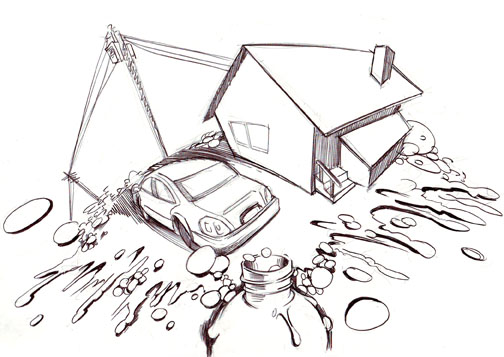Public policy is sometimes dictated outside the House and Senate’s walls. Sometimes the most powerful change comes not from the mouths of politicians or their constituents but from laboratories and pharmaceutical buildings. Science, not politics, is the greatest proponent of change. From the railroad to the nuclear bomb, science has overwhelmingly determined the course of history.
Humanity understands this. This is why, even in the wake of a global recession, science still receives funding. Take the ostentatiously named Advanced Research Projects Agency-Energy or ARPA-E. Last year, the newly created agency received its initial budget from the last year’s stimulus bill in the amount of $400 million.
Did this new agency create jobs? Yes. However, while this may be the practical reason for creating such an agency, the funding of science is a belief that this human endeavor will change things for the better.
Last week, ARPA-E announced they had invented a sort of artificial photosynthesis. No, this isn’t a solar panel. It’s a legitimate reproduction of what drives Earth’s ecosystems.
For those of us unaware of the process, photosynthesis is the production of energy, in the form of sugars, using carbon dioxide, water and sunlight.
ARPA-E’s version, spearheaded by MIT chemist Dan Nocera, uses the same elements, but instead of creating energy in the form of sugars it produces it in a form that can be used to generate electricity.
While the process is too complicated to explain to those outside the science world, Nocera assures us that it’s simple: “I know this is going to work. It’s so easy to implement,” he says referring to the possibility of mass production.
It’s nice to see our stimulus money put to good use. Theoretically, with this process a bottle of water could power an entire house.
The potential of utilizing this natural process to our advantage is seemingly endless. Scientists estimate that photosynthesis traps about 100 terawatts of energy per year; this is roughly six times more than the power consumption of the entire world.
While we might not be using water to power our world anytime soon, using this example of how investment in science can benefit society wouldn’t make it wrong to assume that much of the change pushed in Congress can be done in university classrooms and laboratories.
In other words, is climate change a policy problem or a science one? How about world hunger, or the spread of AIDS? How about our lack of jobs or the inhumane way wars are fought.
This editorial is not calling for the elimination of aid to these causes in favor of science — something has to be done as science progresses — but it does assert that the solution to these problems will not be announced by politicians but by scientists.
Science will not end war, hate or discrimination, but it could produce a world where things aren’t as bad.
History is concerned with the past. The arts attempt to reflect the condition of humanity in the present. Science, however, looks to the future. This concern with the future is what puts science at the forefront of human progress.
Humanity will continue to invest in science. No recession, no war, no famine will stop this because at the end of the day we believe that science is the true proponent of positive change.
As politicians bicker in elaborately decorated buildings, rest assured someone in a laboratory on some university campus someone is attempting to find the real solutions to humanities problems and until then, we’ll just have to settle with what we have.




